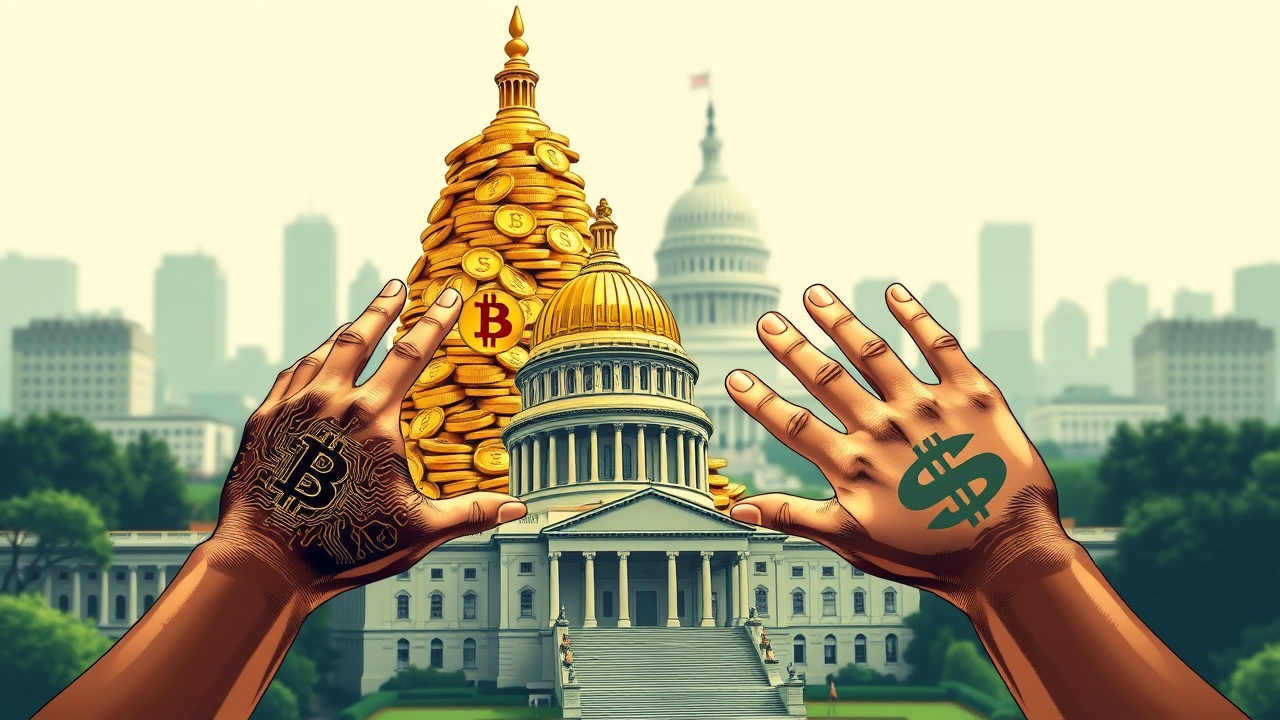Historic Cryptocurrency Seizure
In a groundbreaking move, the U.S. government has seized over $14.4 billion in Bitcoin, marking a historical milestone as the largest cryptocurrency seizure the Department of Justice (DOJ) has ever conducted. This substantial amount comes from Chen Zhi, a businessman from Cambodia accused of orchestrating a global cryptocurrency scam. As the legal proceedings unfold, the future of this digital asset remains uncertain, sparking widespread speculation about its potential uses.
Legal Proceedings Against Chen Zhi
Currently, federal prosecutors have leveled charges against Chen Zhi that include wire fraud and money laundering. They are also pursuing a legal claim for the forfeiture of the seized Bitcoin. As this legal situation progresses, questions arise: will the U.S. add these assets to President Trump’s proposed strategic Bitcoin reserve, or will the money be allocated to compensate Chen’s purported victims?
Government’s Plans for Seized Bitcoin
The Department of the Treasury, which manages the government’s Bitcoin portfolio, has yet to clarify its plans regarding the seized funds despite inquiries from media sources. However, the implications of the government’s eventual decision could be significant, especially given the substantial amount now under its control.
Proponents of Trump’s Bitcoin reserve initiative have been vocal about their hopes that these funds will be directed towards bolstering the nation’s Bitcoin assets. Senator Cynthia Lummis from Wyoming praised the DOJ’s action, asserting that converting criminal proceeds into a national asset can foster positive outcomes and urged Congress to enact laws that regulate the handling of seized cryptocurrencies.
Expert Opinions on the Seizure
Finance lawyer Scott Johnsson anticipates that a sizable portion of the seized Bitcoin will remain with the government, while some funds may eventually be used to compensate victims after a long and complex legal process to resolve claims related to the extensive money laundering network associated with Chen Zhi.
Ari Redbord, formerly of the U.S. Treasury and now a global policy leader at TRM Labs, indicated that it remains uncertain how much of the Bitcoin might be integrated into the strategic reserve versus being used for victim restitution. The addition of this new Bitcoin to the government’s assets could significantly amplify the value of its existing holdings, although exact figures are unclear.
Current Estimates and Future Implications
Current estimates from blockchain intelligence firm Arkham Intelligence suggest that the federal government may already hold approximately $22 billion in Bitcoin. Therefore, this latest seizure would represent a dramatic enhancement to the U.S.’s cryptocurrency reserve if officially confirmed.
In March, an executive order from President Trump tasked both the Treasury Department and a newly formed crypto working group within the White House to ascertain the exact quantity of Bitcoin owned by the government by April. A subsequent report in July referenced an evaluation delivered by the Treasury Secretary, but it revealed little about the current scale of Bitcoin holdings.
As investigations continue and the fate of the seized Bitcoin remains in limbo, attention turns to how the government will ultimately decide to handle this digital gold.




